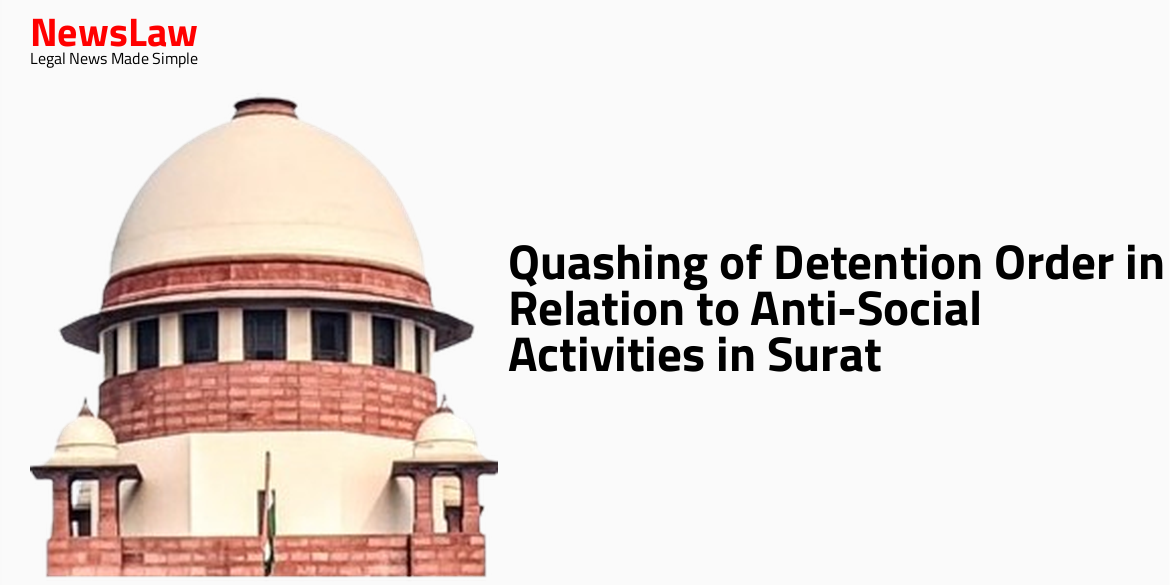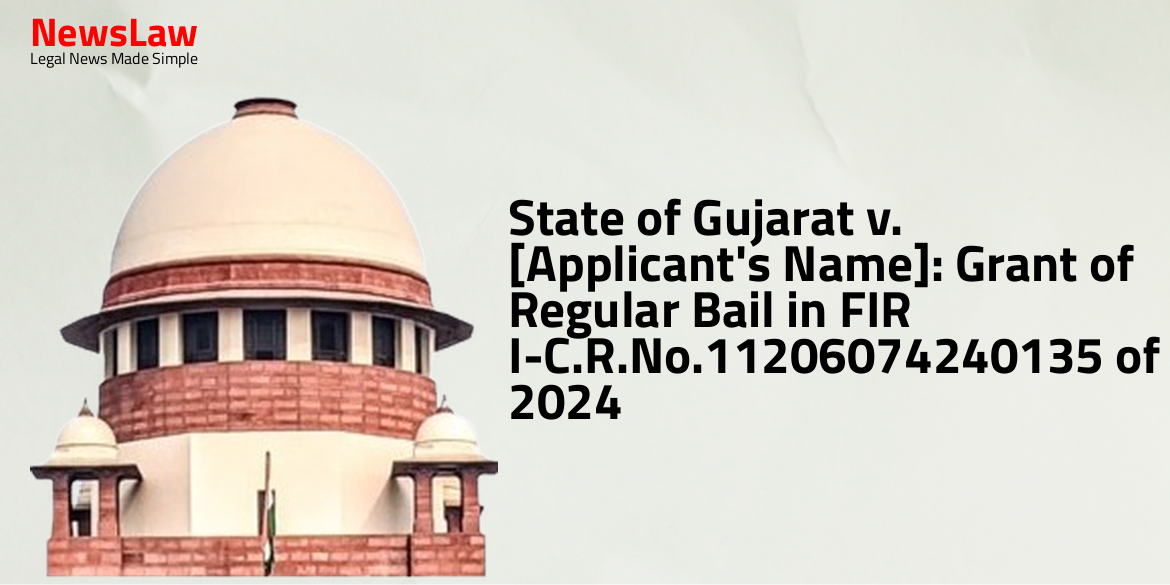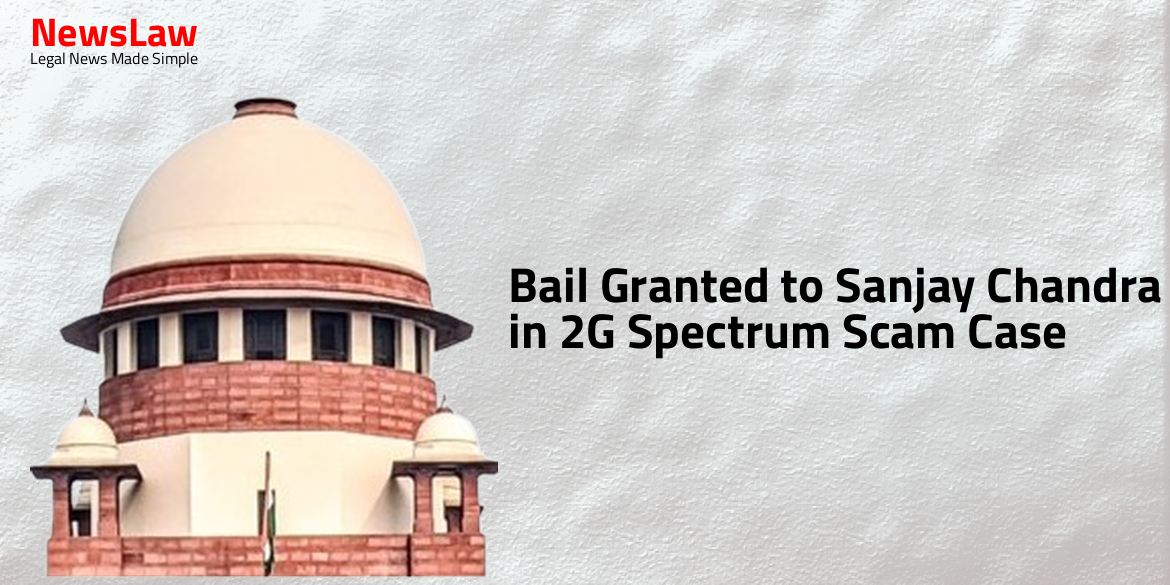In a significant verdict, the Gujarat High Court has ruled on the quashing of a detention order concerning anti-social activities in Surat. The court analyzed the grounds of detention and concluded that they were not related to public order, but rather to law and order concerns. The case, which involved the detaining authority and the individual in question, sheds light on the distinction between law and order and public order issues in preventive detention matters.
Issue
- The issue at hand is whether the order of detention passed by the Detaining Authority under the Act of 1985 is legally sustainable.
- The facts and submissions of the parties have been carefully considered before addressing this issue.
- The key question is whether there is a substantial legal question related to the interpretation of the Constitution of India or any of its orders in this case.
Arguments
- The grounds of detention have no nexus to the ‘public order’ and are purely a matter of ‘law and order’.
- The registration of the offence cannot be said to have either adversely affected or likely to affect the maintenance of public order as explained in sub-section (4) of Section 3 of the Act of 1985.
- The offences alleged to have been committed by the detenu have no bearing on the maintenance of public order; his activities are only prejudicial to the maintenance of law and order, not public order.
- The Detaining Authority passed the order after considering the detenue’s antecedents and past activities.
- The order was meant to prevent the detenue from engaging in activities prejudicial to public order in Surat.
- The State Counsel argued that the detenue is a habitual offender whose actions have had a negative impact on the society.
Analysis
- The detaining authority failed to establish that the petitioner’s alleged anti-social activities would adversely affect public order.
- The detention order was based on the petitioner’s involvement in prohibition offenses, for which bail was granted.
- The offenses in question do not have a direct impact on the maintenance of public order according to the Supreme Court’s interpretation.
- The distinction between ‘law and order’ and ‘public order’ was highlighted, emphasizing that not every act of assault leads to public disorder.
- Incidents of disturbance can be dealt with under ordinary criminal law without invoking preventive detention unless they directly impact the community or public interest.
- The mere disturbance of law and order leading to disorder is not sufficient for preventive detention; it must be a disturbance that affects public order to justify action under the Preventive Detention Act.
- The alleged offenses committed by the petitioner do not have any bearing on the maintenance of public order.
- The petitioner may be punished for the alleged offenses but they did not affect the community’s tempo of life.
- Being a bootlegger alone does not warrant preventive detention unless activities as a bootlegger adversely affect or likely to affect public order.
- The offenses alleged against the petitioner and the witness allegations do not create insecurity, panic, or terror in the public area, thus not impacting public order.
- The material on record is insufficient to show that the detenue’s activities adversely affect public order, rendering the detention order illegal and invalid.
- The detaining authority’s subjective satisfaction is deemed to be not in accordance with the law.
- The petition is allowed, the order dated 18.01.2024 is quashed, and the detenue is to be set at liberty if not needed in any other case.
Decision
- Direct service permitted
- Rule is made absolute
Case Title: RAKESH @ RAGHU S/O BAKABHAI BHARWAD (SABHAD) THROUGH HIS BROTHER VIVEK KUMAR S/O BAKABHAI BHARWAD Vs. STATE OF GUJARAT
Case Number: R/SCA/4578/2024



